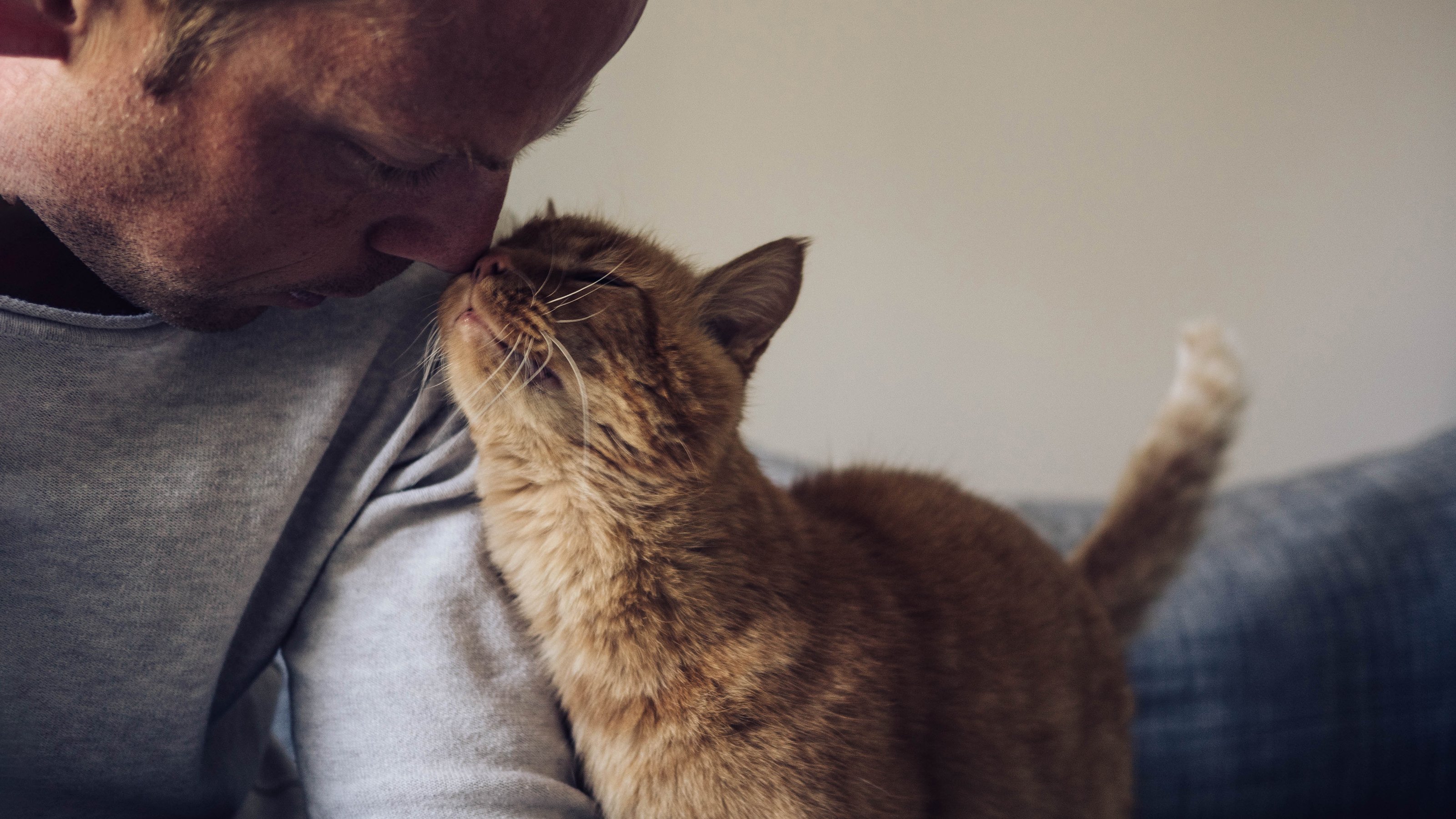
Dementia in Cats
Is it old age or is it dementia?
Cat dementia affects almost a third of 11 to 14-year-old cats.
Behaviour changes such as becoming more vocal, losing their toilet training, and being awake more at night aren’t just normal signs of aging, they’re signs of a degenerative brain condition.
Dementia can affect all breeds of cats and isn't curable, but you can slow its progression and the earlier you start interventions, the more effective they can be.
But how do you tell the difference between dementia and old age, and what can you do about it?
Click here to try the Vets4Pets cat behaviour symptom checker
FAQs
No tests are available for cat dementia. A diagnosis is made by ruling out other possible causes.
Individual behavioural changes could be due to one of several medical conditions but a number of behavioural changes might indicate cognitive decline.
You can complete a simple behaviour screening questionnaire to identify dementia in your cat.
- If your cat doesn’t display any listed behaviours it’s unlikely that there is currently significant cognitive impairment. Repeat the questionnaire in three to six months.
- If the results suggest possible cognitive impairment, make an appointment with your vet. Their examination may uncover a medical condition to explain the changes or allow them to diagnose dementia.
Cats developing dementia may display one or more behaviours listed on a vet's checklist given the acronym DISHAAL.
D = Spatial or temporal Disorientation
Forgetting where the litter tray is or unable to find their way out of a familiar room.
I = Social Interactions
Becoming clingy, affectionate, or attention-seeking, or disinterested in interacting with anyone.
S = Sleep-wake cycle
Active and vocal at night and sleeping during the day.
H = House-soiling
Forgetting how to use the litter tray, going to the toilet next to it, or on other surfaces.
A = Alterations in Activity levels
Aimless wandering is one of two behaviour problems most often reported in cats of 15 and over.
A = Anxiety
Attention-seeking behaviour, separation anxiety, or fearfulness of people or places they know.
L = Learning and memory
Forget previously learned behaviour, less likely to respond to commands, or slow to adapt to change.
There's no cure for dementia but steps can be taken to slow its progression.
A cat’s environment can be made easier to negotiate and more stimulating. Providing opportunities for play increases activity levels, provides mental stimulation, and promotes the growth and survival of neurons. In younger cats, this reduces the risk of them developing dementia in later life. In cats already showing signs of dementia, it can help to reduce frustration.
This common problem in cats suffering from dementia can be to get your attention (try letting them sleep with you) or because they are hungry (try an automatic feeder).
There are currently no diets designed specifically for cats with dementia but some widely available feline diets rich in antioxidants and specific amino acids have been associated with increased longevity or improved brain function.
Supplements and complementary remedies that might help to improve the sleep-wake cycle or reduce anxiety include milk protein hydrolysate, suntheanine, melatonin, and certain herbal or amino acid preparations.
The two main drugs used to help dogs with dementia by protecting nerve cells from free radical damage and improving the blood flow to the brain haven’t been extensively trialled in cats. Although there are anecdotal reports that they might improve symptoms in cats, they are not licenced for use in this species. Cats and dogs metabolise drugs very differently and what is safe for use in dogs is sometimes very toxic in cats.
Other drugs can be used successfully in cats to treat anxiety, so these may be helpful. Again, they are not licenced for use in cats, so their use depends on certain criteria, one being that there are no licenced alternatives. Your vet can advise you on the potential risks and benefits of medical intervention and they will need to ask you to sign a form to show that you have given informed consent to use an off-licence medication.
Cats suffering from dementia struggle with change, so if you need to go away, arrange for someone to take care of them in their own home. If you have visitors, consider settling your cat in a familiar room away from others.
As the exact cause of dementia isn’t known, it’s difficult to know how to prevent it but we do know that environmental enrichment and a diet rich in antioxidants promotes neuron growth and survival and improves mental function.
Cat Advice
Read more of our expert cat advice to keep your cat happy and healthy.
